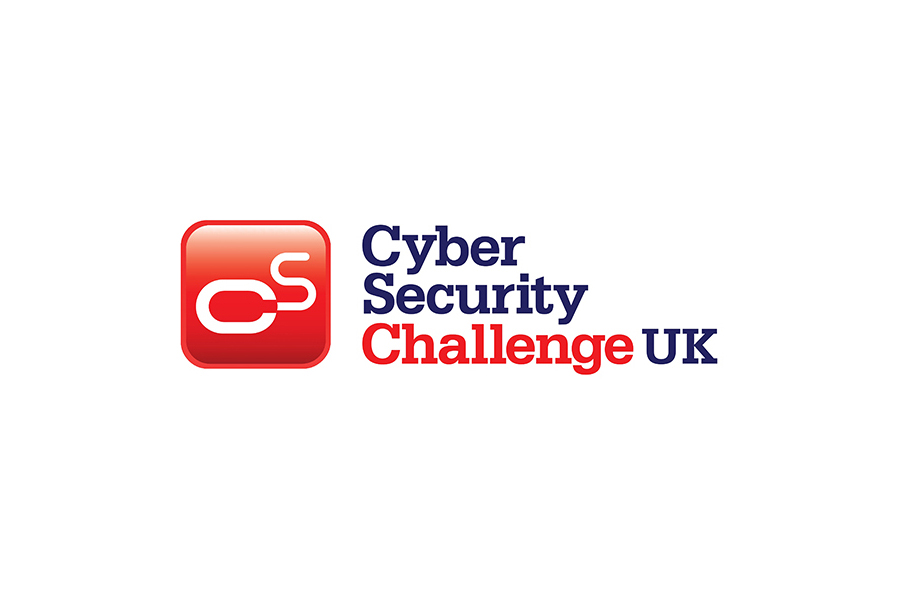Statistics from the Office for National Statistics show that business cyber crime in the country is up by 63% in 2017. However, the shortage in cyber professionals continues to grow worldwide, leaving plenty of UK businesses vulnerable to attacks.
With high demand and low supply, more and more companies are willing to invest in cyber professionals to protect their personal and sensitive data. This gives plenty of hopefuls the chance to earn more in this industry.
But given the responsibilities you would need to take on, especially the higher you go up the ladder, having an undergraduate degree becomes increasingly important in opening doors. These courses will give you the theoretical and practical foundations you would need to handle the various aspects of cyber security, and be a valuable addition to any business.
Below are GCHQ-accredited cyber security courses across various universities in the country that you can choose from:
1. University of Oxford: MSc in Software and Systems Security
With an outstanding global reputation as one of the top universities in the world, the University of Oxford’s MSc in Software and Systems Security lays the foundation for systems security by highlighting software, information technologies, and security properties.
Designed for those in full-time employment, you’ll learn how to better apply these principles to real-world situations and stay updated with the latest best practices in the industry—taught by world-class experts in 10 different subject areas.
Part-time module (roughly three courses per year), 2 to 4 years.
Undergraduate degrees with honours (or equivalent) in related subjects like informatics, engineering, or computer science. You are also required to have at least two years of professional experience.
Those without formal training can still apply, as long as you have extensive experience and/or qualifications.
This programme is priced per module. For those living in the UK/EU, registration fee costs £8,660, while each module costs £2,170. For those outside the UK/EU, registration fee costs £14,785, while each module costs £2,170.
For a total estimated fees, go to their department’s website.
Since this programme is for full-time employees, most students return to their current jobs to aim for higher/more specialised positions.
2. Lancaster University: MSc in Cyber Security
Lancaster University’s MSc in Cyber Security takes on a multi-disciplinary approach by merging technical skills with other disciplines (e.g. economics, risk management, psychology, and social science).
This programme focuses on four Information Security modules. You’ll also learn about network and systems security, as well as cybercrime. An individual project—requiring 200 hours of work and a 40,000-word dissertation—is required to hone your expertise and apply it to the world outside the classroom.
Full-time course for 12 months, or a part-time course for 24 to 36 months.
A degree (or equivalent) in computer science, computer security, or other similar degrees. Previous modules on security, network and systems, programming, and cybercrime are also required. Relevant experience may be considered.
Full-time course for UK/EU residents cost £9,500 per year, while it costs £20,500 for overseas students per year.
Part-time students from the UK/EU would need to pay £4,750 per year. Part-time course isn’t available for overseas students.
This programme aims to prepare you for a career in cyber security, application and software security, and cyber law enforcement.
3. Cranfield University: Cyber Defence and Information Assurance MSc/PgCert/PgDip
Cranfield University’s Cyber Defence and Information programme provides a unique learning blend of residential and online teaching.
The entire programme is designed for leaders—those who want to assess and defend against cyber threats at an organisational level. By the end of the course, you’ll be able to come up and execute responses to emerging and current threats.
All programmes are on part-time basis. MSc students will be able to graduate in 5 years, PgDip students in 4 years, and PgCert students in 3 years.
You need to have any of the following: a first or second class honours degree; a third class degree but with experience; a pass degree with five years of experience; or HND/c with seven years of experience.
Those without degrees but have 10 years of experience will also be considered, given that you were involved in information security, information operations, information risk, or any related role.
For both UK/EU and overseas students, MSc fee is £31,000, PgDip fee is £21,100, and PgCert fee is £10,550.
Managerial job roles, especially those who currently or aspire to be CIO or CISO. Upon graduation, you’ll learn how to assess and communicate cyber issues to senior management and/or the executive board.
4. University of Birmingham: MSc in Cyber Security
The University of Birmingham’s MSc in Cyber Security aims to set the foundation for their students who want to pursue careers in software industry or research. Upon graduation, you’ll be able to design and build secure computer systems and processes.
Combining both theory and practice, this programme’s modules involve cryptography, network security, forensics, and secure programming. You’ll also have plenty of optional modules to choose from like penetration testing, advanced cryptography, and intelligent data analysis, among others.
Big industry players like Microsoft, Vodafone, and IBM often visit the campus to talk to students.
This is a full-time course, to be completed in 1 year.
A 2:1 Honours degree in a related subject like computer science. Knowing data structures and algorithms is a plus.
UK/EU students are charged £9,250, while international students are charged £22,500. Both are annual tuition fees.
After graduation, you can start forging your career in various cyber security roles like secure software development or cyber security consultants. You can also continue your studies and get a PhD. The university boasts of graduates who gained employment in Accenture, IBM, PriceWaterHouseCoopers, BT, and Delcam.
5. Edinburgh Napier University: MSc in Advanced Security and Digital Forensics
Edinburgh Napier’s MSc in Advanced Security partners computer security with digital forensics and incident response.
This course focuses on network security, audit and compliance, malware analysis, cryptography, and host and mobile digital forensics. A dissertation project is required towards the end of the programme to enhance your specialism.
Full-time module lasts for 1 year; part-time for 2.5 to 4 years; and distance learning for 2.5 to 4 years.
A bachelor’s degree in any computing discipline (e.g. computer science, computer networking, etc.) or other IT discipline. The university is open to considering those with less qualification, provided that there is sufficient experience in the industry.
Tuition would depend on your chosen module.
Full-time module for those from the UK or the EU would cost £5,850, while those from overseas would need to pay £15,150.
Meanwhile home/EU-taught modules cost £890, and home/EU-dissertation module costs £530. Overseas-taught modules cost £2,250, while overseas-dissertation module would cost £1,550.
This programme can lead you to the following job positions: Security Consultant/Analyst
Penetration Tester, Network Security Analyst, Forensic Investigator, Audit/Compliance Consultant, Security Certification Engineer, Incident Response Analyst, Sys Admin, and Network Engineer.
6. Royal Holloway: MSc in Information Security
Royal Holloway launched the first MSc in Information Security in the world back in 1992. This programme covers cryptography, security management, network security, computer security, security technologies, and secure business architectures.
The university’s close ties to industry employers in the country proves to be advantageous for students, as it would help you prepare for high-level information security positions.
The entire programme can be completed in 1 year if you do it full time. For part-time students, duration of the course is 2 years.
Those in the Continuous Professional Development programme will take 3 to 7 years to complete, while distance learning students can expect to graduate in 2 to 4 years.
A UK 2:2 (Honours) or equivalent is required. Industry experience may also be considered, if it’s sufficient.
Tuition fee for UK/EU students is £11,300 per year, while international students’ tuition fee is £18,500 per year.
Part-time students are charged a pro-rata tuition fee (typically half of the full-time costs).
You’ll be able to land a high-level position in the cyber security industry or move to more postgraduate studies. Your advanced knowledge after graduation will allow you to do data handling, analysis, research, problem solving, and many more for plenty of industries here and abroad (e.g. banking, telecommunications, civil service, etc.)
7. University of York: MSc in Cyber Security
University of York’s MSc in Cyber Security aims to provide its students a strong foundation in cyber security by covering malware, cryptography, identity, trust and reputation, and risk management. You will also learn forensic analysis and developing secure systems.
This programme is composed of eight modules, with each including lectures, problem classes, practical classes, and personal study time. You will then undertake an individual project and dissertation which involves an academic staff member and an external organisation.
Full-time students can complete the programme in 1 year, while part-time students can do it in 3 years.
A computer science (or related) degree is required and a background in software engineering, computer science, or IT. An upper second class honours degree (or equivalent) is also required.
Full-time students in the UK/EU will be asked to pay £8,580, while those from overseas will need to shell out £21,640.
Part-time students in the UK/EU will be asked to pay £2,863 the first year, while those from overseas will need to shell out £7,213. Fees for subsequent years are subject to confirmation by the university.
Possible careers include counter-terrorism, cryptography, cyber and digital forensics, development and code analysis, incident response, intelligence operations, law, legalities and compliance, network security, and penetration testing.
You can also go the routes of policy and strategy, research and new developments, secure software, security architecture, security auditing, and vulnerability assessment.
Take Your Education To The Next Level
While there are many ways to break into the cyber security field, getting a bachelors and/or a master’s degree would give you a leg up against other applicants. In a lot of cases, a more advanced degree matters, depending on the position you are aiming for and what the company requirements are.
Do note that employers value education, certifications, and industry experience separately. One should not be seen as a replacement for another.
For more cyber security graduate courses, take a look at the latest courses that we offer. If you have any questions, feel free to reach out to us via our contact page.
If you’re already qualified and are looking for a job in cyber security, or an employer looking for candidates, then check out our sister site, Cyber Security Jobs.









